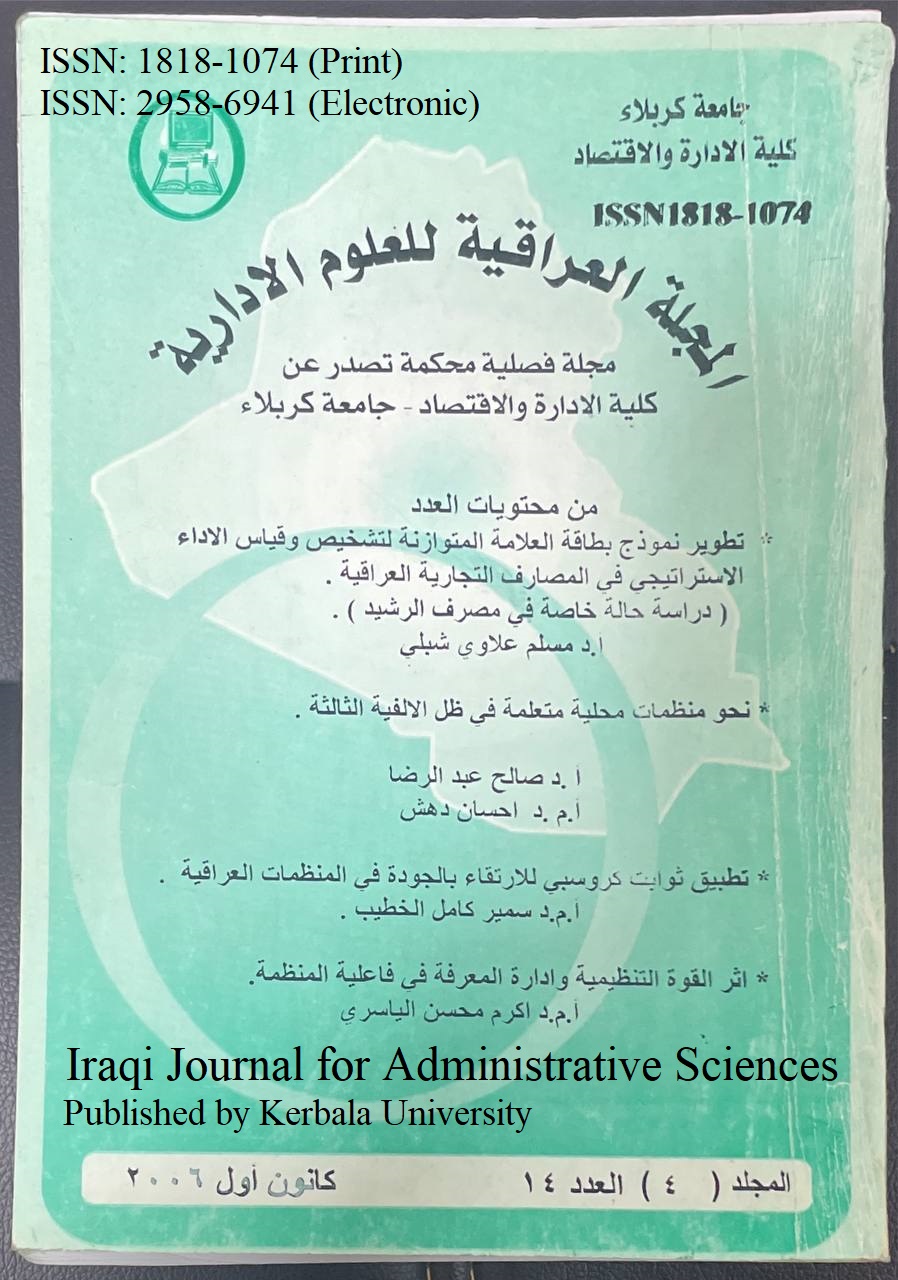Towards educated local organizations in the third millennium
Keywords:
learning organizationsAbstract
The current study took upon itself the responsibility of answering a major question: To what extent can our local organizations be educated organizations? In order to cover the aspects of the topic, the study reviewed a number of points of view regarding the characteristics of learning organizations, and the final opinion settled on choosing the (2001 Daft) model to be tested in one of the local organizations that deal with the most prominent and important environmental challenges (technological change), the General Company for Electrical Industries. The study was limited to two main hypotheses, which the statistical methods used (arithmetic mean and standard deviation Kruskal-Wallis test) resulted in their rejection. The study, which adopted the questionnaire as its main tool, also resulted in a main conclusion that our local organizations are close to being learning organizations, which prompted the researchers to propose a number of recommendations, the most prominent of which is the necessity of activating the role of the human element by providing training and information opportunities, as well as urging the administrations of local organizations. To move towards adopting a team approach and granting individuals more powers in the field of employment.
Published
How to Cite
Issue
Section
License
Copyright (c) 2006 College of Administration and Economics - University of Karbala

This work is licensed under a Creative Commons Attribution-NonCommercial-NoDerivatives 4.0 International License.
Authors retain the copyright of their papers without restrictions.




